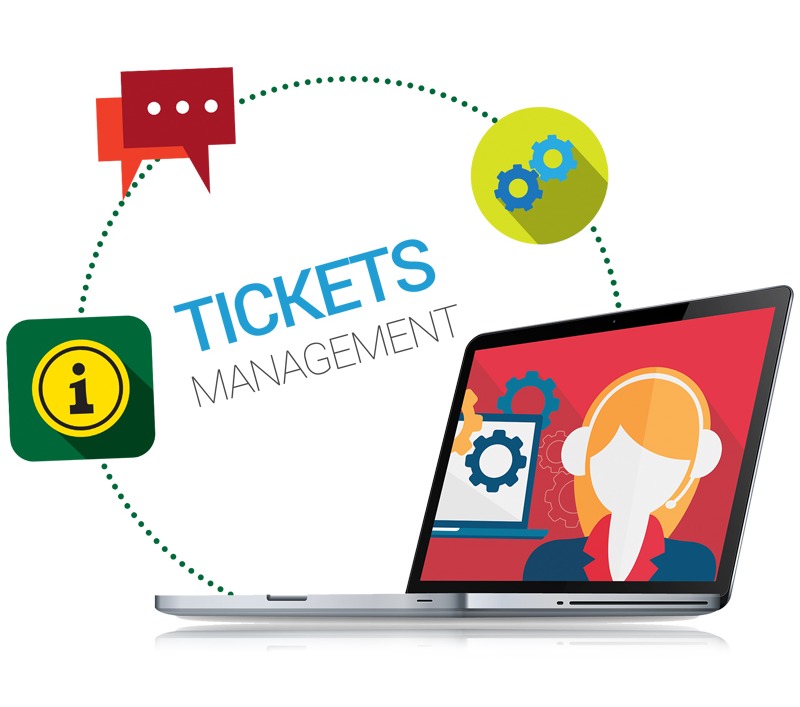For many companies in the corporate sector, the so-called Ticketing systems are an essential prerequisite for the successful organization of their adjacent departments – including – support desks (Helpdesks) and service management, organization and resource management, project management, and the corresponding tasks (Project & Task management).
The ticketing systems are flexible and universally applicable. In this interview with Mr. Pawan Bali, Sr. Project Manager at Octal IT Solution, we will tell you about their concept and the different possibilities for their application.
1. What are the benefits for an enterprise from the so-called Ticketing systems and Helpdesk software?
Pawan Bali: As a provider of services in the field of IT infrastructure, software, and web development, we often apply Ticketing systems internally, both in the context of the IT support offered to our end customers and for more flexible management of large R&D projects. In the first case, the transparency, efficiency, and communication of IT support to the customer are optimized, and after solving the problem, we actively seek feedback. This improves the service and has a certain marketing effect (increasing customer satisfaction and loyalty).
In the second case, the implementation of Ticketing systems allows for consistent application of available resources, skillful restructuring, transparency, and constant relevance, but also better assessment of the current status of the processes in a given development activity. Thus, thanks to increased efficiency, projects are executed faster and more efficiently, and the error rate and downtime are reduced.

Ticketing systems we also offer externally – for our guarantors – especially for large software development projects for the needs of the construction and financial industry. An example of this is a ticketing system directly built into a mobile application for scheduling tasks, staff, documentation, tangible assets and time worked. The possible integration of a direct communication interface with an existing ERP (Enterprise resource planning) system provides advantages such as automated payroll calculation and other conveniences.
Generally speaking, the advantages that such a solution guarantees are the fast and error-free management of complex tasks and processes. To better illustrate, I will give another example from practice – an international company that manages hierarchical and cross-sectoral tasks, including decision-making processes, permissions, approval, and other information tools for consumers. The integrated interfaces in their resource management system allow the binding of multiple Ticketing systems and databases, which are consequently managed centrally.
2. What software does Octal IT Solution rely on?
Pawan Bali: When requesting IT support to end customers, we use internal software – an open-source solution that allows you to connect the ticketing process with e-mail, customize workflows, plus some other additional things useful for our collaborators. For flexible project management of a complex nature in the context of software and web programming, we use Jira, which provides a wide range of functions, and extensibility for dynamic project management.
For clients – guarantors in need of implementation of the Ticketing system, we rely in part on “Jira“, partly on our own systems developed by third parties, which we programmatically expand and adapt according to our activities and assigned technical requirements. In our internal Jira, as in our other clients, we often create interfaces for connection to ERP and CRM systems, as well as to other databases, for the purpose of efficient and automated information exchange.

Interfaces to external systems are also common and their type depends mainly on the purpose of their application. With direct end-user support (in the form of a Helpdesk for example), it is useful to integrate e-mail, web-chat, and CRM systems. If these systems are well implemented, they offer numerous advantages: on the one hand, the processing of orders and inquiries from customers is processed quickly and transparently. Thus, the quality of the offered services grows, and along with it the customer loyalty. On the other hand, automation increases the efficiency and speed of staff work.
3. And what is the participation of the client-guarantor in the whole implementation process?
Pawan Bali: For direct inquiries in the context of IT support, the relevant Email addresses and telephone numbers are available to the end customer. Along with them, here comes, in addition, a Ticketing system that has an interface (Front-end), through which they can submit their request, and after successful registration (login) in the system – to follow its course of processing. Thus, the final customer is informed about the content and status of submitted his request but also, and who processes it – through the interface or automatically via email. An online video conferencing system is also available for parallel remote support.
In this line of thought, it is worth noting that automated and remote collaboration between a client and a contractor in the context of IT support is a regular necessity that is actively promoted by us. This saves both costs and effort and time.
4. And what are the phases of implementing such Ticketing software for the client?
Pawan Bali: First of all, there is the specification clarification phase, in which the content and technical requirements for the final product are listed. The next step is the implementation of the concept, the testing stages, as well as its implementation. It is important for us to be able to ensure that what the client receives is technically and economically justified, meeting exactly his requirements. Our experience has shown that a well-done consultation in advance, is a major factor and predictor of this. To this, our concept belongs the implementation of an initially economical and optimized system, which is then subject to gradual expansion to include as many additional functions as needed.




















